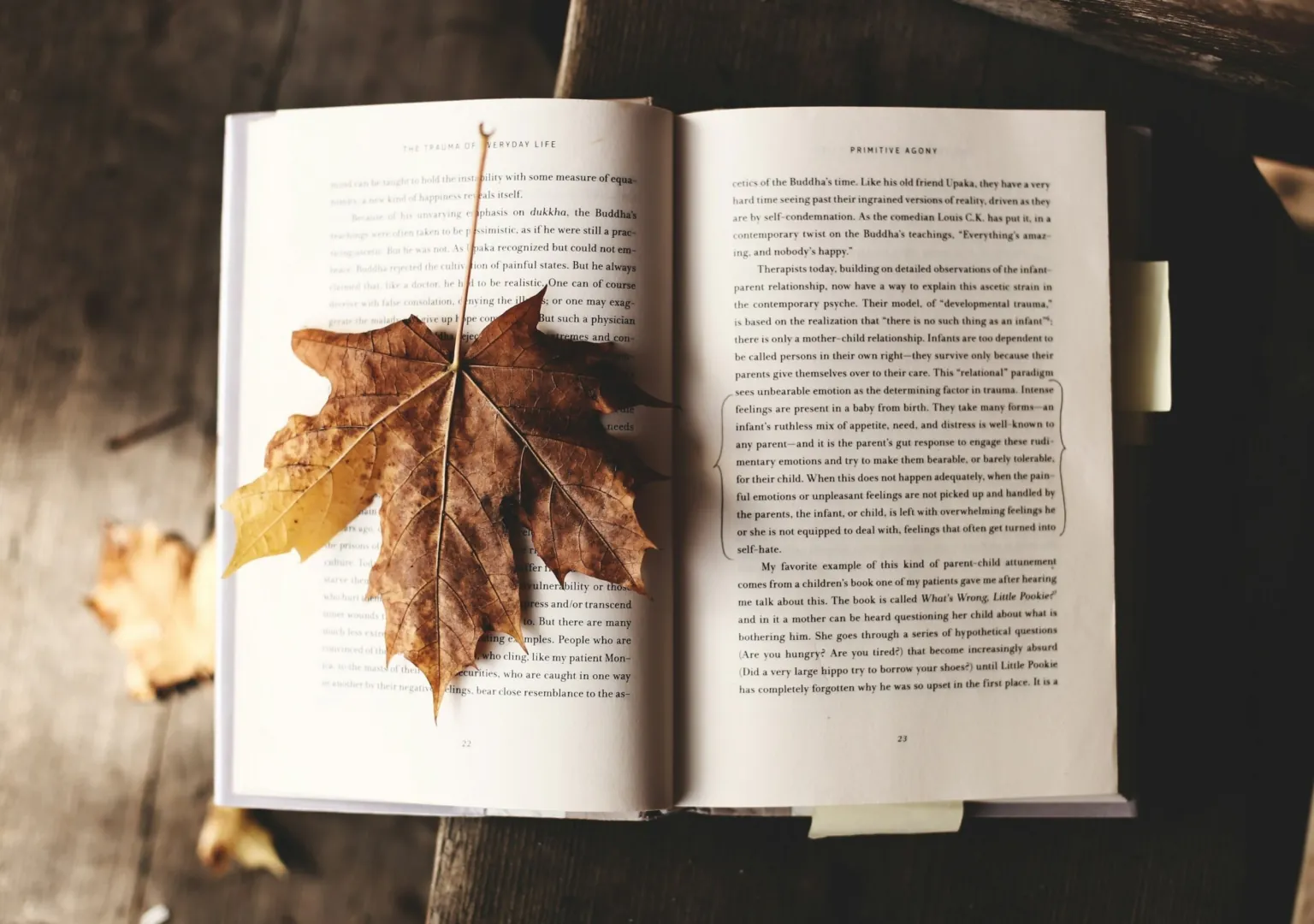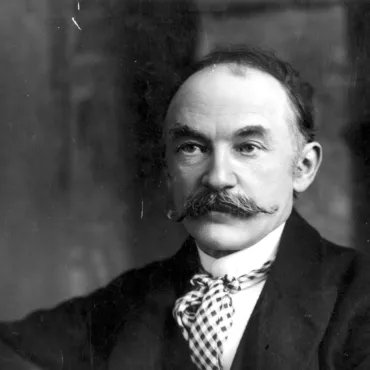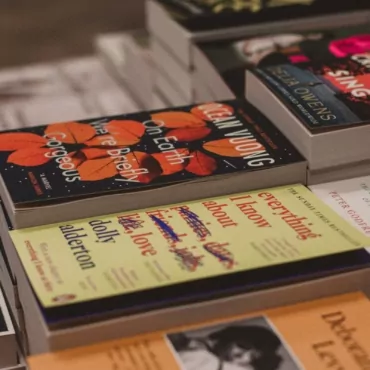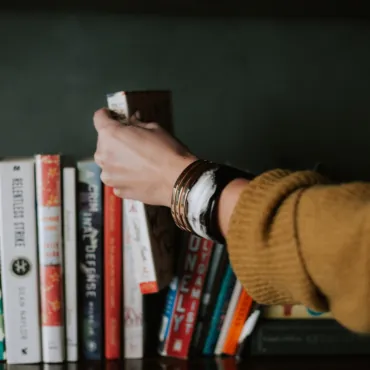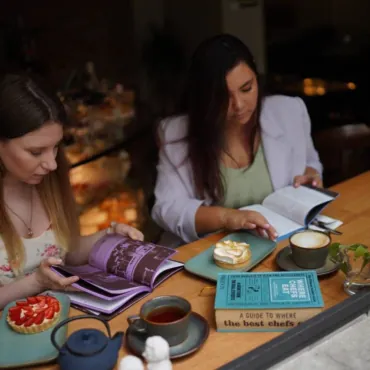1
“The Boy,” Oleg Strizhak, 2021.

The end of the sixties. The main character, the writer Sergei Vladimirovich -otsky, lives, as they would say now, his best life: he publishes widely, has an affair with a young actress, returns home to his beautiful wife (what only descriptions of her stockings, perfume and shoes are worth). One day he meets Boy, a young starving author, a wolf cub. This meeting turns the lives of both of them upside down.
Written in the eighties and first published in the nineties, “The Boy” is now considered an overlooked masterpiece – at least for its stunning language: in every word, in every sentence breathes life, beauty, eternity; every turn of the author’s thought is followed like a mesmerized rabbit.
…the regal Neva, in the cosmic movement of the night, the whirling of the snow, covered with dead snow for many versts, with all its daughter rivers, all its islands, covered with dead snow from forests to forests, from the granites of the Fortress to the granites of palaces far away in the night, the regal winter Neva did not recognize, rejected and made the black night City unrecognizable. Black, winter nights. Not yet did I know the poems where: …the black Vesper in the mirror….. where: …and the roll call of crows and harp I feel in the ominous silence; I did not yet know the verses where: …in a terrible height earthly dreams burn; when I finally enter my cherished, wonderful future, in the late sixties, they will be read at night in the house on the Fontanka, which is opposite the Summer Garden, my girl, a lovely actress. In my youth I had not yet known such poems, and in the black December nights of the sixty-first year that had disappeared, I only felt their possibility….
2
“Autumn,” Ali Smith, 2018

The first part of a seasonal tetralogy about the nature of time and how differently we perceive it. The multi-layered, fragmented novel invites the reader to play – and is open to interpretation. Set in the present day, history teacher Elizabeth is friends with her neighbor, seventy-year-old Daniel Gluck. Both are lonely, both are lost. Elizabeth remembers how Daniel taught her to love art, reads Shakespeare and Huxley at his bedside. The historical context of 2016 is also important: the country is on the brink of Brexit, people talk a lot, but “their words don’t add up to a dialog”.
It was the worst of all time, it was the worst of all time. Once again. That’s the nature of things. They disintegrate, always have and always will – that’s their nature. That’s why the old old man gets thrown ashore. He looks like a punctured soccer ball with the seams split open – like the leather ones people used to kick a hundred years ago. The sea was rough. It ripped the shirt off his back. The words, naked like me on the day I was born, are in his head, which he turns, but it hurts.
3
“Vera Stenina’s Enviable Feeling,” Anna Matveeva, 2022
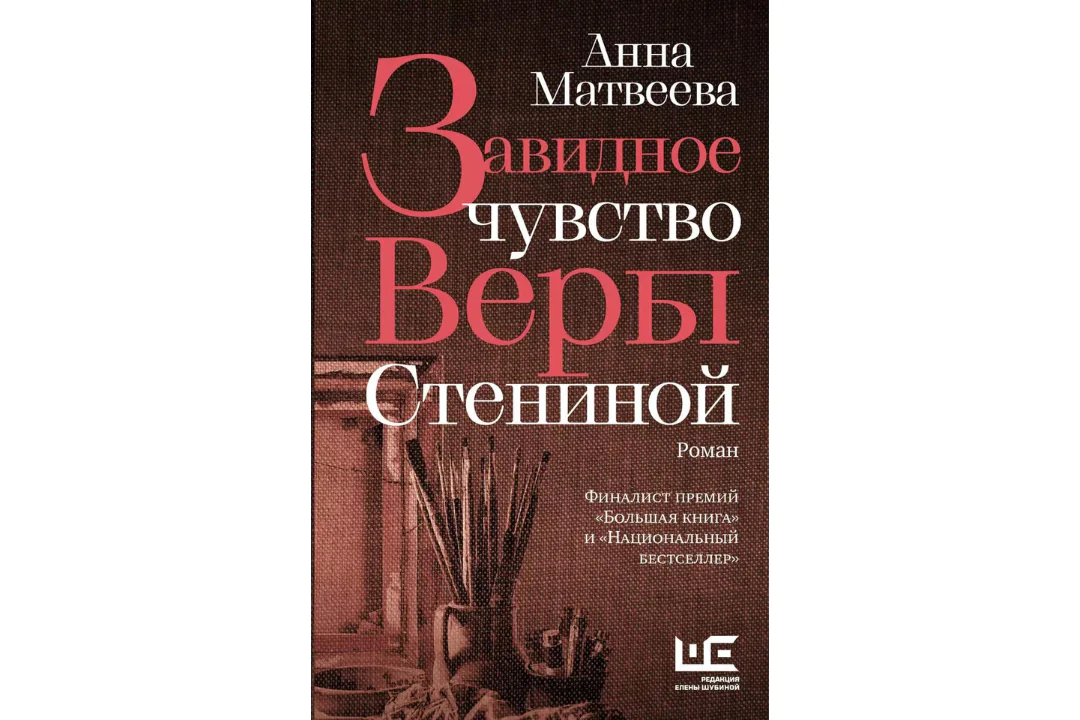
Until the eighth grade, Vera Stenina was beautiful. After the eighth grade, her friend Yulia became beautiful. Now Vera’s wishes and dreams are realized by Yulia – unknowingly, everything just comes to her. Envy – corrosive as acid, black as a bat, torments Vera Stenina. Another “enviable” feeling is Vera’s unique ability to feel painting, to hear the sounds and smells of great paintings. A great book about how art-dreams intertwine with life, about the ambiguity of human nature, about desire and true love.
Vera floated slowly to the stage to get her certificate, stretching the moment like an accordion. Yulka, who had been summoned earlier, flew up there in three steps, losing one of her terrible shoes on the way – she laughed. Those dimples again! Three boys, who were chumps – and handsome, too – ran to the stage while this Cinderella was hopping there on one foot, and almost fought over her shoe. And Vera was crumpling the hem of her dress with her sweaty fingers, and the rose on her breast sank as if she realized only now that it had been plucked, and that it was forever.
Envy is the most shameful of all human feelings.
4
“Dutch House,” Ann Patchett, 2022.

Andrea, the father’s fiancée, appears in the Conroy family home. The children, Danny and Maeve, hope with all their might that the stepmother’s charms will dissipate and she will disappear – but the situation, on the contrary, becomes more and more difficult. The luxurious estate, the same Dutch house in which the family lives, becomes a full participant in the events: glass, porcelain, the delicate smell of lilacs are replaced by the clanking of metal, dreary yellow tones; the cold penetrates the house. “It’s always dark there,” the grown children say of him. Time passes, the resentment and pain do not subside. The fairy-tale motif of the evil stepmother is woven into the family saga – the result is a tangible and heartfelt text that will resonate with many.
It’s a funny thing, habit. You can think you know everything about it, but you never know what you look like until you’re done with it. I thought of Celeste, all those years ago, telling me how crazy it was that Maeve and I kept driving to the house where we’d lived as kids-and how I thought she just couldn’t understand.
– You’ve gotten sad,” Maeve said.
– Uh, no. – I leaned back on the couch. – That’s not the point. – We’d turned our misery into a god, worshipped it. I felt bad, not because we’d decided to stop, but because of how much time it had taken us.
5
“Autumn Crime,” Anders de la Motte, 2021.

In the fall of 1990, five teenagers go swimming at the Mörkabü quarry in Switzerland. One of them tragically dies, but the investigation of the case is quickly suspended, writing it off as an accident. In the fall of 2017, Anna Vesper stumbles upon a strange case from thirty years ago and finds inconsistencies… Skeletons are coming out of the closets – shameful secrets of the locals, and even Anna herself. The most atmospheric book of the selection: it has luxurious autumn Switzerland, unexpected plot twists and lively characters who are easy to empathize with.
Why does Brur Klein keep Simon’s things in his basement stash? Things that for twenty-seven years had been thought lost or burned? And why is there a portrait of a young Klein, half-naked, in bed? A portrait by Karl-Ju? Anna leaned back in her chair. She could see all the pictures from here. Three whole lives, or even four. Hidden from the world, like the things in the closet. On a nearby chair was a worn leather folder that Anna hadn’t noticed at first. There was only one sheet in the folder, some kind of letter written in beautifully slanted handwriting. The pencil text had been erased and rewritten over and over again, making Anna think of a mural from Tabor.
Dear Elisabeth. I have done a terrible thing. The kind of thing for which there is no forgiveness.
But I did it out of love.
6
“Exercise,” McEwan, 2023.
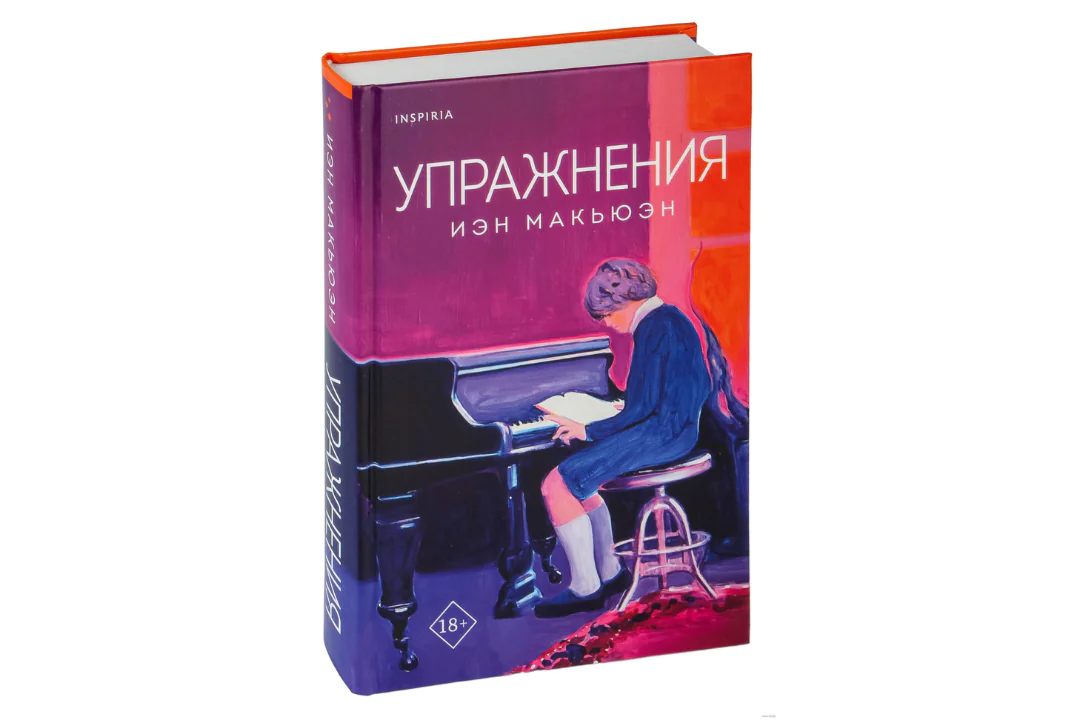
McEwan is known to the general public at least for his novel “Atonement” and the film adaptation of the same name (how good was Keira Knightley in a green silk dress!). The new book is also about the history of the twentieth century, refracted in a private biography. Roland we meet at eleven years old at the piano, at a music lesson – for mistakes the teacher hits his knees, “with the edge of a ruler, not a cloth, and it hurts.” With neither music, nor family, nor even writing – Roland tries to write reviews – working out, the protagonist drifts from class to class, from dream to dream. It is both a parable about those who didn’t catch luck by the tail, a hymn to the post-war generation, and a reminder of how life-long learning is possible if we are not afraid of making mistakes.
And inside, in the very center of the hut, there was a hot stove, heated with coal, and when they were warm, they made a lot of noise. They could do it here, and nowhere else, because their Latin teacher, a stunted, genteel Scotchman, could not keep up with the class. On the blackboard was written in the teacher’s confident handwriting Exspectata dies aderat. And below it, in student scribbles, was written: The long-awaited day had come. In this very hut, so they had been taught, in harsher times men trained for sea battles and learned the exacting skills of planting underwater mines.
7
“Rebel Angel,” Emir Kusturica, 2024.

The director’s next novel is, as is almost always the case with Kusturica, more essay than narrative prose, more cinematography with its vivid optics than text. The book is dedicated to the Austrian playwright Peter Handke, in whom Kusturica sees a friend and an ideal creator. Meetings with Handke are interspersed with reflections on world politics and tragic events in Serbia, as well as memories of his childhood in Sarajevo. Children’s perception of the world in general appears passionately desired by the artist, a lost paradise, and the ultimate victory is to forget about the ruthless time, to blur it, to make it non-existent.
It was a sunny day, which rarely happens in Normandy in early summer. The “golden goal” was kicked, there were not enough players. When the penalty was awarded, Peter decided to stand on the goal. And there we were, Peter and I, standing against each other, our feet digging into the English lawn, soaked by the Normandy rains. Peter has his arms wide open, wearing a plaid shirt with the sleeves rolled up instead of a T-shirt. He’s looking through his glasses, he’s not a professional player and he doesn’t feel the center of the goal. I look at the goalkeeper with the eyes of a self-confident soccer player – not a professional, really, but the ball obeyed me. I don’t need a run-up here, I’ll outplay it, I think; three steps, a shot, the ball flies into the bar. Peter throws up his hands, the ball bounces off his fingers into the corner of the field. From this spurt, Peter’s glasses fly off and go straight into the net instead of the ball.
8
“Silver Asholotl,” Anna Starobinets, 2023.

Anna Starobinets is called the queen of Russian horror. Her “Silver Asholotl” combines nightmares of different levels – and it is not clear who is scarier: a shrill employee of the building department or the souls of the dead clinging to the cheeks of the protagonist. Unexpected not only plot twists, but also the form: there is a story – correspondence on the forum, the boy’s first-person confession, a chronicle of the collection of documents to leave for Israel, a session of getting rid of guilt, a diary about the virus. Perfect for a gloomy November evening – especially the audio version, read by Anna Starobinets herself, actor Gregory Perel, musician Ivan Zhuk and others. The atmosphere is complemented by illustrations by Olga Medvedkova – a chill down your spine is guaranteed.
But she just has to meet that little girl. Explain that her mom doesn’t see her anymore. That no one else sees her. And give her a hug. And tell her to go back to her country.
To that country where the sun always shines, the sea is noisy, the sand rustles and ripe fruit bursts. To that land where beautiful songs are sung. And where even the wind leaves a sweet taste on your lips.
